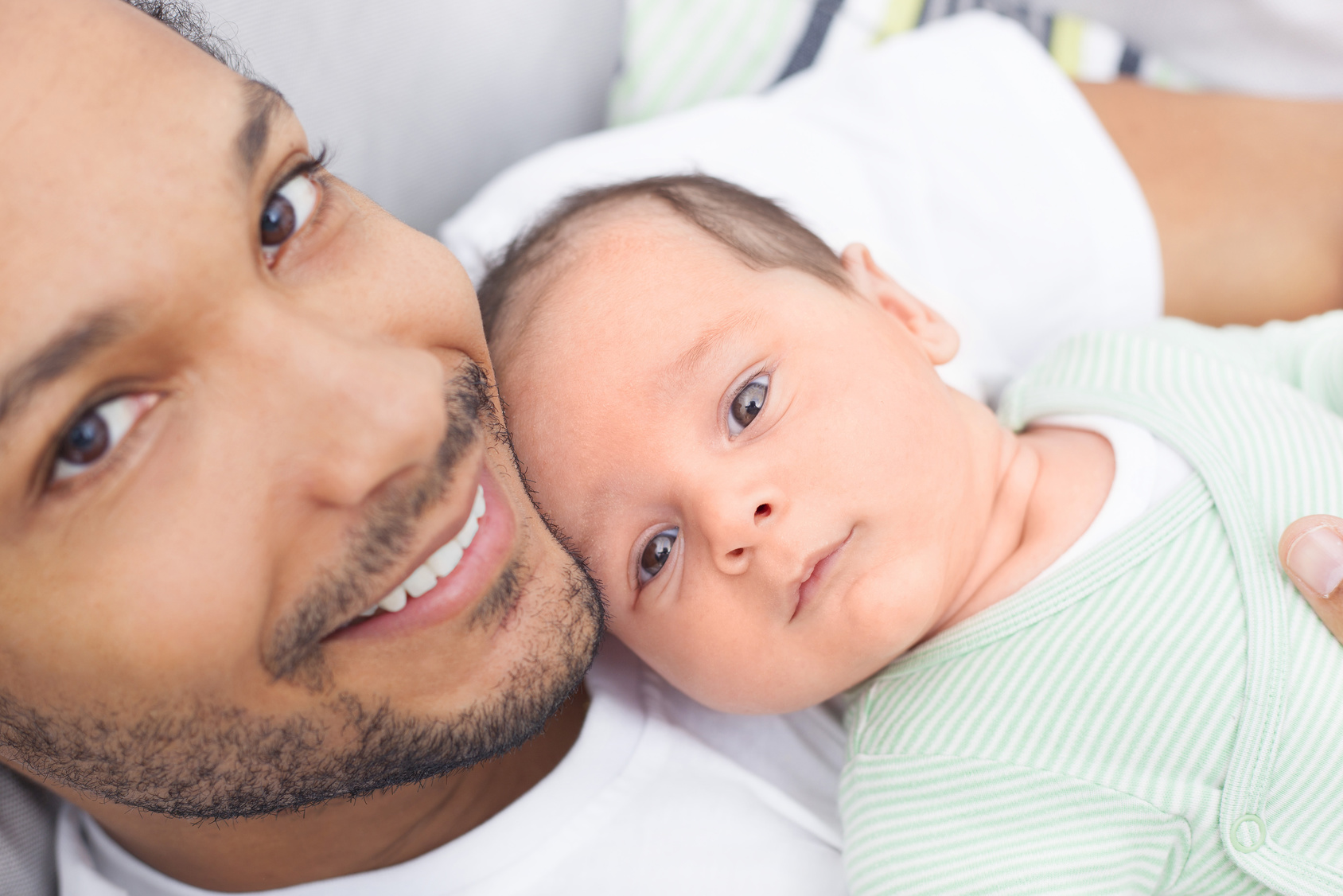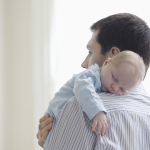While perinatal depression is typically considered to be a woman’s illness, a number of studies have suggested that, although men do not experience any of the dramatic physiologic or hormonal changes that go along with pregnancy and the postpartum period, new fathers may also experience perinatal depression.
In a cohort study of 3523 new fathers from New Zealand, 2.3% of the men experienced antenatal depressive symptoms, scoring higher than 12 on the Edinburgh Postnatal Depression Scale (EPDS) during the third trimester of their partners’ pregnancy. The strongest predictors for depression in this group of expectant fathers were fair to poor health during their partner’s pregnancy (odds ratio (OR) = 2.06).
After birth, 4.3% of the fathers experienced elevated depressive symptoms measured at 9 months postpartum. No longer being in a relationship with the mother significantly increased risk for postpartum depression (OR = 6.36). Other risk factors included having fair to poor health at 9 months (OR = 3.29), being unemployed at 9 months (OR = 1.86), and a having a history of depression (OR = 2.84).
Why Is This Important?
While much attention has focused on the impact of maternal psychiatric illness on the well-being of the child, less is known about the impact of psychiatric illness in the father. Several studies have demonstrated that postpartum depressive symptoms in the father are associated with increased rates of child emotional or behavioral problems in the young child, even after controlling for numerous potential confounders, including depressive symptoms in the mother.
Other studies have demonstrated that paternal depression occurring early in a child’s life may have long-lasting effects. Researchers at the University of Oxford reported that paternal depression in the postpartum period was predictive of psychiatric disorders in the children 7 years later and were most strongly associated with oppositional defiant disorder and conduct disorder, even after adjusting for maternal depression.
It appears that maternal depressive symptoms exert a somewhat stronger effect on child development and behavior. In one study, if the mother had depressive symptoms, her child had about a threefold increase in the likelihood of behavioral or emotional problems. If the father had depressive symptoms, the risk was increased by about 1.7-fold. However, one of the most striking findings in this study was the increase in child emotional and/or behavioral problems when both parents had depressive symptoms; in households where both parents were depressed, 25% of the children had behavioral or emotional problems.
While we emphasize the importance of tending to the mother’s psychiatric illness in order to decrease the risk of mental health problems in the child, these studies indicate that we cannot afford to ignore the father’s mental health. It is especially important when both parents suffer from psychiatric illness. In this case, the child not only carries a genetic vulnerability to illness but he or she is also exposed to environmental factors which may increase the risk of behavioral and emotional problems.
Ruta Nonacs, MD PhD
Ramchandini PG, Stein A, O’Connor TG, Heron J, Murray L, Evans J. Depression in Men in the Postnatal Period and Later Child Psychopathology: A Population Cohort Study. J Am Acad Child Adolesc Psychiatry. 2008 Feb 27 [Epub ahead of print]
Rosenthal DG, Learned N, Liu YH, Weitzman M. Characteristics of Fathers with Depressive Symptoms. Matern Child Health J. 2012 Feb 24. [Epub ahead of print]
Underwood L, Waldie KE, Peterson E, D’Souza S, Verbiest M, McDaid F, Morton S. Paternal Depression Symptoms During Pregnancy and After Childbirth Among Participants in the Growing Up in New Zealand Study. JAMA Psychiatry. 2017 Feb 15.
Weitzman M, Rosenthal DG, Liu YH. Paternal depressive symptoms and child behavioral or emotional problems in the United States. Pediatrics. 2011 Dec;128(6):1126-34.







Leave A Comment